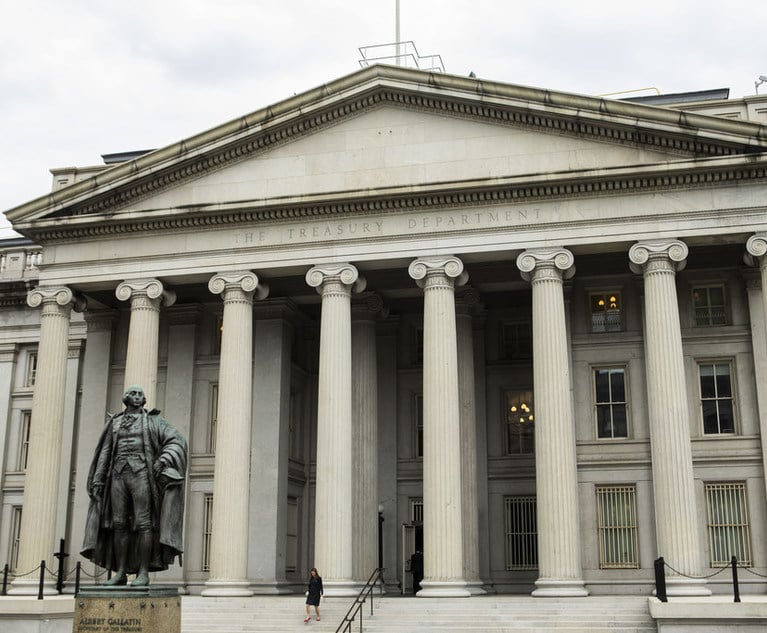SCOTUS declines to arbitrate web retailer tax collection debate
Amazon and Overstock.com hoped to eliminate a New York State law that allowed for the collection of state taxes for goods shipped to that state.
December 03, 2013 at 08:05 AM
5 minute read
The original version of this story was published on Law.com
Cyber-Monday 2013 has come and gone, but one thing that will be sticking around is the practice of collecting state taxes on the goods purchased online during it. On Monday, Dec, 2 the Wall Street Journal reported that U.S. Supreme Court declined to intervene on the decade-old argument of whether or not states can force online retailers to collect state sales tax for items purchased online.
The challenge to this law was brought to the SCOTUS by Amazon and Overstock.com in 2008, and they hoped to eliminate a New York State law that allowed for the collection of state taxes for goods shipped to that state. New York was among the first states to implement laws that required online vendors to collect taxes and the motion to do so was upheld by its highest state court.
While Overstock and Amazon argue that charging taxes squelches their ability to grow in an increasingly competitive marketplace, owners of physical stores have frequently pointed to lack of tax collection as an unfair advantage for online vendors.
The decision does not set any official word on the right to impose tax collection, but it does suggest that it is a state's right to do so.
In 1992, the Supreme Court ruled that states could not collect tax from an online vendor unless that vendor had a physical presence in their state. The New York state law has been able to circumvent that by focusing on marketing arrangements made by online dealers. New York considers any state-based website that directs traffic to an online retailer as a physical marketing presence, therefore making online retailers liable for collecting tax.
Earlier this year the Senate approved legislation that would make it easier for states to collect online sales taxes, but the law has been held up in the House by tax opponents.
Amazon has urged a more holistic solution to what has thus far been a patchwork of state and federal provisions. “Congress can and should act to resolve” the sales-tax issue, the WSJ reports an Amazon spokesman said Monday.
Check out these related stories from InsideCounsel:
Amazon tries to take sales tax battle to Supreme Court
Amazon sued over requiring security screenings on unpaid time
Pending SCOTUS ruling could change the face of securities litigation
Cyber-Monday 2013 has come and gone, but one thing that will be sticking around is the practice of collecting state taxes on the goods purchased online during it. On Monday, Dec, 2 the Wall Street Journal reported that U.S. Supreme Court declined to intervene on the decade-old argument of whether or not states can force online retailers to collect state sales tax for items purchased online.
The challenge to this law was brought to the SCOTUS by Amazon and Overstock.com in 2008, and they hoped to eliminate a
While Overstock and Amazon argue that charging taxes squelches their ability to grow in an increasingly competitive marketplace, owners of physical stores have frequently pointed to lack of tax collection as an unfair advantage for online vendors.
The decision does not set any official word on the right to impose tax collection, but it does suggest that it is a state's right to do so.
In 1992, the Supreme Court ruled that states could not collect tax from an online vendor unless that vendor had a physical presence in their state. The
Earlier this year the Senate approved legislation that would make it easier for states to collect online sales taxes, but the law has been held up in the House by tax opponents.
Amazon has urged a more holistic solution to what has thus far been a patchwork of state and federal provisions. “Congress can and should act to resolve” the sales-tax issue, the WSJ reports an Amazon spokesman said Monday.
Check out these related stories from InsideCounsel:
Amazon tries to take sales tax battle to Supreme Court
Amazon sued over requiring security screenings on unpaid time
Pending SCOTUS ruling could change the face of securities litigation
This content has been archived. It is available through our partners, LexisNexis® and Bloomberg Law.
To view this content, please continue to their sites.
Not a Lexis Subscriber?
Subscribe Now
Not a Bloomberg Law Subscriber?
Subscribe Now
NOT FOR REPRINT
© 2025 ALM Global, LLC, All Rights Reserved. Request academic re-use from www.copyright.com. All other uses, submit a request to [email protected]. For more information visit Asset & Logo Licensing.
You Might Like
View All
FTC Finalizes Child Online Privacy Rule Updates, But Ferguson Eyes Further Changes

Supreme Court Reinstates Corporate Disclosure Law Pending Challenge

The New Trump Worksite Enforcement Paradigm: Everything You Need to Know
14 minute read
Antitrust in Trump 2.0: Expect Gap Filling from State Attorneys General
6 minute readTrending Stories
- 1No Two Wildfires Alike: Lawyers Take Different Legal Strategies in California
- 2Poop-Themed Dog Toy OK as Parody, but Still Tarnished Jack Daniel’s Brand, Court Says
- 3Meet the New President of NY's Association of Trial Court Jurists
- 4Lawyers' Phones Are Ringing: What Should Employers Do If ICE Raids Their Business?
- 5Freshfields Hires Ex-SEC Corporate Finance Director in Silicon Valley
Who Got The Work
J. Brugh Lower of Gibbons has entered an appearance for industrial equipment supplier Devco Corporation in a pending trademark infringement lawsuit. The suit, accusing the defendant of selling knock-off Graco products, was filed Dec. 18 in New Jersey District Court by Rivkin Radler on behalf of Graco Inc. and Graco Minnesota. The case, assigned to U.S. District Judge Zahid N. Quraishi, is 3:24-cv-11294, Graco Inc. et al v. Devco Corporation.
Who Got The Work
Rebecca Maller-Stein and Kent A. Yalowitz of Arnold & Porter Kaye Scholer have entered their appearances for Hanaco Venture Capital and its executives, Lior Prosor and David Frankel, in a pending securities lawsuit. The action, filed on Dec. 24 in New York Southern District Court by Zell, Aron & Co. on behalf of Goldeneye Advisors, accuses the defendants of negligently and fraudulently managing the plaintiff's $1 million investment. The case, assigned to U.S. District Judge Vernon S. Broderick, is 1:24-cv-09918, Goldeneye Advisors, LLC v. Hanaco Venture Capital, Ltd. et al.
Who Got The Work
Attorneys from A&O Shearman has stepped in as defense counsel for Toronto-Dominion Bank and other defendants in a pending securities class action. The suit, filed Dec. 11 in New York Southern District Court by Bleichmar Fonti & Auld, accuses the defendants of concealing the bank's 'pervasive' deficiencies in regards to its compliance with the Bank Secrecy Act and the quality of its anti-money laundering controls. The case, assigned to U.S. District Judge Arun Subramanian, is 1:24-cv-09445, Gonzalez v. The Toronto-Dominion Bank et al.
Who Got The Work
Crown Castle International, a Pennsylvania company providing shared communications infrastructure, has turned to Luke D. Wolf of Gordon Rees Scully Mansukhani to fend off a pending breach-of-contract lawsuit. The court action, filed Nov. 25 in Michigan Eastern District Court by Hooper Hathaway PC on behalf of The Town Residences LLC, accuses Crown Castle of failing to transfer approximately $30,000 in utility payments from T-Mobile in breach of a roof-top lease and assignment agreement. The case, assigned to U.S. District Judge Susan K. Declercq, is 2:24-cv-13131, The Town Residences LLC v. T-Mobile US, Inc. et al.
Who Got The Work
Wilfred P. Coronato and Daniel M. Schwartz of McCarter & English have stepped in as defense counsel to Electrolux Home Products Inc. in a pending product liability lawsuit. The court action, filed Nov. 26 in New York Eastern District Court by Poulos Lopiccolo PC and Nagel Rice LLP on behalf of David Stern, alleges that the defendant's refrigerators’ drawers and shelving repeatedly break and fall apart within months after purchase. The case, assigned to U.S. District Judge Joan M. Azrack, is 2:24-cv-08204, Stern v. Electrolux Home Products, Inc.
Featured Firms
Law Offices of Gary Martin Hays & Associates, P.C.
(470) 294-1674
Law Offices of Mark E. Salomone
(857) 444-6468
Smith & Hassler
(713) 739-1250






